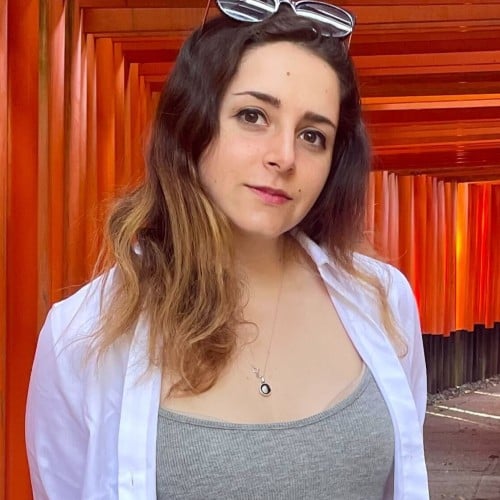
Diaspora youth in Hong Kong, Macau shine a light on climate change in Southeast Asia
- Workshops at Eaton HK, hosted by National Geographic Explorers and The Philippine Youth Atlas, highlighted the importance of connection and indigenous knowledge
- Every week, Talking Points gives you a worksheet to practise your reading comprehension with exercises about the story we’ve written
 Representatives from Youth Atlas spoke about the importance of connection and community in the fight against climate change. Photo: Facebook
Representatives from Youth Atlas spoke about the importance of connection and community in the fight against climate change. Photo: FacebookYouth from Hong Kong and Macau celebrated Earth Day – and connected to their heritage – by shining a light on the threat of climate change in Southeast Asia.
More than 60 people, many with connections to the Philippines and Indonesia, crowded into Eaton HK in Jordan over two weekends last month for various climate change events. The first weekend featured workshops organised by National Geographic Explorers and The Philippine Youth Atlas, a group that empowers indigenous youth to use culture, art, and literature to highlight the need for climate solutions.
The theme of the event, “Island Constellations”, highlighted how coastal and island communities face the brunt of repercussions from climate change yet also offer some of the most “tangible and digestible solutions,” said Youth Atlas member Tasha Tanjutco.
Tanjutco said there was a connection between the climate crisis and indigenous peoples’ “forgotten culture”, which placed a lot of focus on caring for the Earth.
“We talk a lot about indigenous knowledge in these solutions,” the 24-year-old said. “We sometimes forget that the climate crisis is actually a cultural crisis. It’s forgetting to ask who we are and where we’ve come from.”
Island connections
In addition to the workshops, a photo exhibition on display at Eaton until May 15 showcases work by indigenous youth who captured their homelands on borrowed cameras in previous Youth Atlas workshops. The exhibition aims to show the threads that connect island communities, one of them being stars.
“We all come from cultures that look at the stars to navigate and guide,” Tanjutco said. “Our cultures have many ancestral relationships with the night sky.”
“Even if we come from different places, instead of being separated by the sea, we were joined by it. So [the name] ‘Island Constellations’ is an ode to that culture.”
Island nations like Indonesia and the Philippines face serious threats due to climate change, such as rising sea levels and extreme weather.
Indonesian climate activist and Youth Atlas member Melati Wijsen, 23, said, “We know that island communities are one of the first peoples to experience the realities of the climate crisis.”
Wijsen is the subject of the documentary Bigger Than Us, which was screened at Eaton during the second weekend of “Island Constellations” events.
“But there is also a lot of hope and resilience felt within these communities of not waiting until they’re older to take action,” Wijsen added.
Building community
The first workshop asked teens to create tapestry art that told the “stories of our lives [and] how we view ourselves,” said Netanya Escote, who came from Macau to Hong Kong to help lead the activities. Youth Atlas provided prompts in Tagalog for students to use as inspiration: kapwa (shared identity), kabutihan (welfare), kalikasan (nature), and kaluluwa (spirit).
Another event, open to those aged 18 to 28, focused on counter-mapping, creating maps that challenge dominant power structures and highlight places and knowledge often overlooked by those in control. Participants also added to the tapestry made in the first workshop, an “emotional” experience for 22-year-old Escote.
“It expressed a lot about how we choose to connect [to the homeland],” said Escote, part of the Filipino diaspora. “It builds [on] the identity of youth that were raised in cities like this and have different cultures behind them.”
Escote, a fourth-year university student studying sustainability management, pursues climate activism through The Balikbayan Collective, which she founded last year as a “digital community and resource space to support the diasporic community”.
The student said that the workshops at Eaton started conversations about climate solutions and identity, particularly for those who grew up outside their homeland, without focusing solely on doom and gloom.
“By bringing in visuals and community, it becomes more attractive for youth to engage and feel encouraged to be a part of [climate] solutions,” she said.
Escote hoped the workshops would inspire attendees to continue connecting with their heritage, learning about climate change and joining climate activism communities.
“This sense of identity, the sense that we can be connected ... [that] we are included in the dialogue, can be used and channelled for good and included in the conversation regarding the climate crisis,” she said.
To test your understanding of this story, download our printable worksheet or answer the questions in the quiz below.
